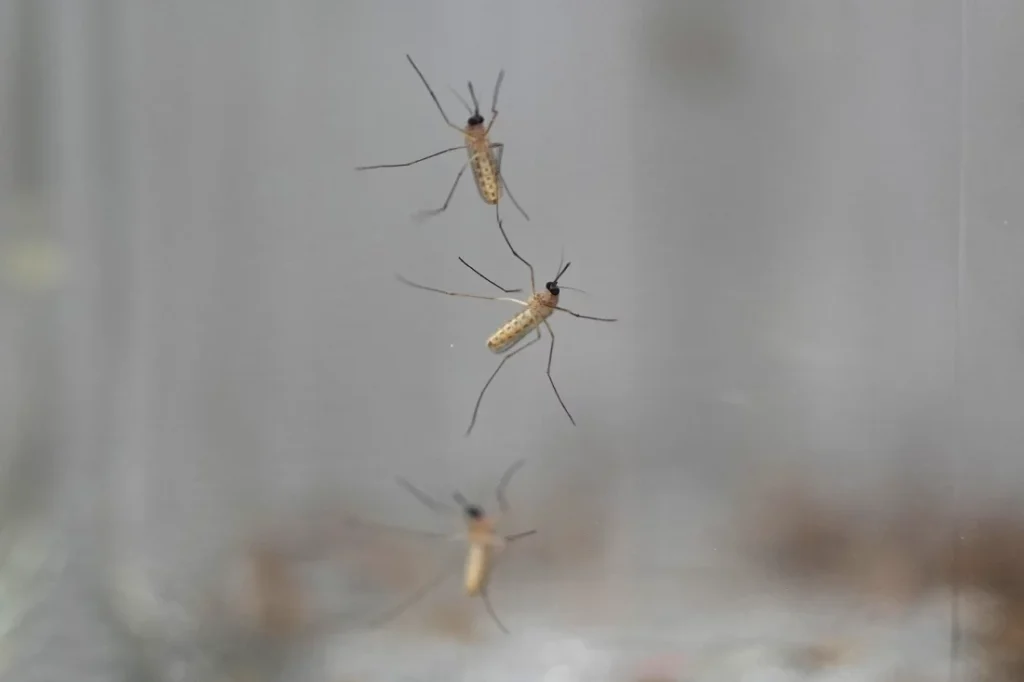Massachusetts Town Closes Parks to Combat Deadly Mosquito Virus
In response to a rising threat from a deadly mosquito virus, a Massachusetts town has taken unprecedented measures. Plymouth, located approximately 40 miles southeast of Boston, has closed its parks from dusk to dawn following the detection of Eastern equine encephalitis (EEE) in a local horse. The decision aims to curb the spread of this rare but potentially fatal disease.
Understanding Eastern Equine Encephalitis
Eastern equine encephalitis is a severe viral infection transmitted through mosquito bites. While rare, the disease has a high fatality rate, with approximately 30% of infected individuals succumbing to the illness. Symptoms include fever, headache, vomiting, diarrhea, seizures, and behavioral changes. Unfortunately, there is no vaccine or specific treatment available for EEE, making prevention crucial [CDC].
Recent Developments in Massachusetts
The Massachusetts Department of Public Health (DPH) has elevated Plymouth’s EEE risk status to high following the recent infection in a horse. This spike in risk comes shortly after the state reported its first human case of EEE for the year, a man in his 80s from Worcester County, marking the first case since 2020.
Plymouth’s Response
- Park Closures: Effective immediately, Plymouth’s parks will be off-limits from dusk to dawn.
- Spraying Initiatives: The town will undertake extensive spraying operations to target mosquitoes. This includes aerial spraying in Plymouth County and truck-mounted spraying in areas of Worcester County.
Protecting Yourself and Your Family
Residents are urged to take preventive measures to reduce the risk of EEE. These include:
- Wearing Protective Clothing: Opt for long-sleeved shirts and pants.
- Using Insect Repellents: Apply repellents containing DEET, permethrin, picaridin, or lemon eucalyptus oil.
- Reducing Mosquito Habitats: Eliminate standing water around homes, which can serve as breeding grounds for mosquitoes.
- Repairing Screens: Ensure that window and door screens are intact to keep mosquitoes out.
Broader Impact and Public Health Concerns
The concern over EEE extends beyond Plymouth. The Massachusetts Department of Agricultural Resources has reported the presence of infected mosquitoes in several other counties, including Barnstable and Essex. Additionally, the state’s health department has identified eight municipalities, including Boston, at high risk for West Nile virus, another mosquito-borne disease.
Public Health Measures
- Spraying and Surveillance: Ongoing mosquito control efforts are crucial. Aerial and truck-mounted spraying are employed to reduce mosquito populations.
- Public Awareness: The state continues to educate residents on preventive measures and the importance of avoiding mosquito bites.
A Call for Vigilance
Michelle Bratti, Plymouth Commissioner of Health and Human Services, emphasized the importance of taking precautions to protect the community. “The health and safety of our community, residents, and visitors remain our priority,” Bratti stated. The town’s actions highlight the need for continued vigilance and proactive measures to combat mosquito-borne diseases.
Looking Ahead
With the heightened risk of EEE, it is crucial for residents of affected areas to stay informed and adhere to public health recommendations. By following preventive guidelines and supporting local health initiatives, communities can work together to mitigate the impact of these dangerous diseases.

Discover more from
Subscribe to get the latest posts sent to your email.





